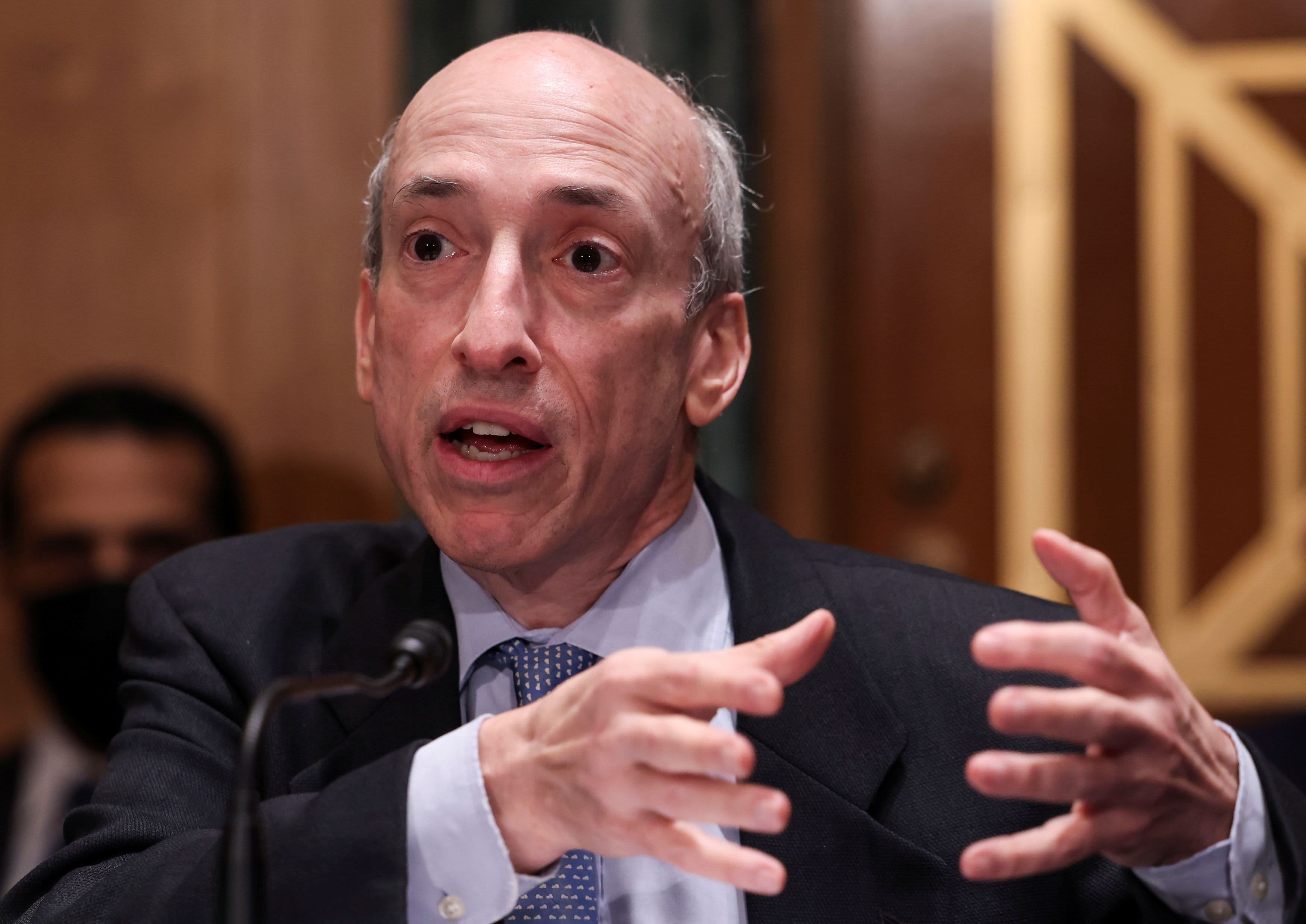The Securities and Exchange Commission is set to allow the first U.S. bitcoin futures exchange-traded funds to start trading next week, a landmark victory for a cryptocurrency industry that has long sought permissions from Wall Street’s top regulator, according to a person familiar with the matter.
Specifically, the person said the SEC isn’t likely to block the ETFs proposed by ProShares and Invesco, which are based on futures contracts and were filed under mutual fund guidelines that SEC Chairman Gary Gensler thinks offer investors significant protection.
The person familiar with the SEC’s decision-making asked not to be named since the discussions are private and pending.
An SEC spokesperson did not respond to CNBC’s request for comment. Representatives for Invesco and ProShares also did not immediately answer emails seeking comment.
Bitcoin traded north of $60,000 on Friday, its highest level since April 17, in part on speculation the SEC would greenlight the ETFs. The world’s largest cryptocurrency by market value is up nearly 40% in October alone and is approaching its record high of $64,869 set earlier this year.
The fund launch will mark the conclusion of a yearslong crusade by the almost $7 trillion ETF industry to persuade the SEC to research and sanction an ETF related to the popular cryptocurrency.
However, the ProShares and Invesco funds will offer investors indirect ways to invest in bitcoin. The ETFs are based on bitcoin futures that already trade on the Chicago Mercantile Exchange. Bloomberg News first reported that the SEC is set to allow the bitcoin futures ETFs to begin trading.
Many others are eager for a pure-play ETF backed by physical bitcoins, though a decision on those funds is not expected for months. Investors say those direct funds circumvent the high cost of rolling into futures contracts, which don’t adequately track the spot price of bitcoin.
The SEC for much of the past decade argued that volatility and fraud throughout the crypto space made ETFs and other such funds too risky to approve. Gensler, who before joining the SEC taught courses on cryptocurrencies from the Massachusetts Institute of Technology, has expressed concern that bad actors could exert significant pressure on prices or limit an asset’s liquidity.
He told the Senate Banking Committee in September that he and his team are trying to protect investors through better regulation of the thousands of new digital assets and coins, as well as oversight of the more-familiar bitcoin and ether markets.
“Currently, we just don’t have enough investor protection in crypto finance, issuance, trading, or lending,” Gensler said in prepared remarks last month. “Frankly, at this time, it’s more like the Wild West or the old world of ‘buyer beware’ that existed before the securities laws were enacted.”
Wall Street’s top regulator has also questioned whether crypto assets can be kept safe from hackers and if there would be future issues validating ownership of coins.
Still, Gensler’s addition to the SEC was heralded by many traders as forward progress given his prior work building out the Commodity Futures Trading Commission in the Obama administration. While there, Gensler helped devise and institute a new oversight regime for the swaps market that had been largely unregulated prior to the financial crisis.
